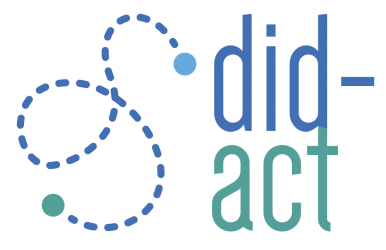by Andrzej Kononowicz
Every project needs evaluation. Even though it might sometimes be considered as cumbersome or stressful for those whose work is evaluated, it is important that the merits and limitations of any given project are clearly laid out. A well-conducted evaluation ideally goes beyond highlighting the particular achievements of a program by delivering ideas for improvement. Furthermore it justifies the need to continue the efforts surrounding the project and its aims. It is commonplace that evaluation and feedback are employed during the last stage of the curriculum development cycle. However, it is well-founded that initiating evaluations in program development should be started as early as possible. The benefits are many with the central reasoning being that evaluating early on maintains and ensures that the chosen tools align with the planned outcome(s).
Continue reading “Ocean waves, footprints and dashboards: the selection of DID-ACT evaluation and learning analytics tools”
